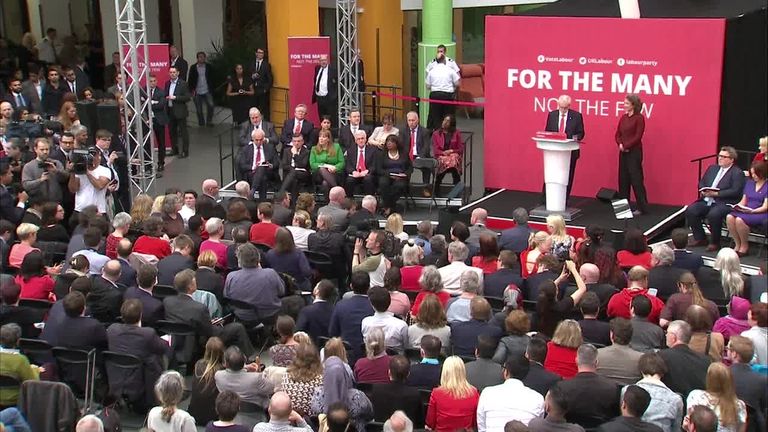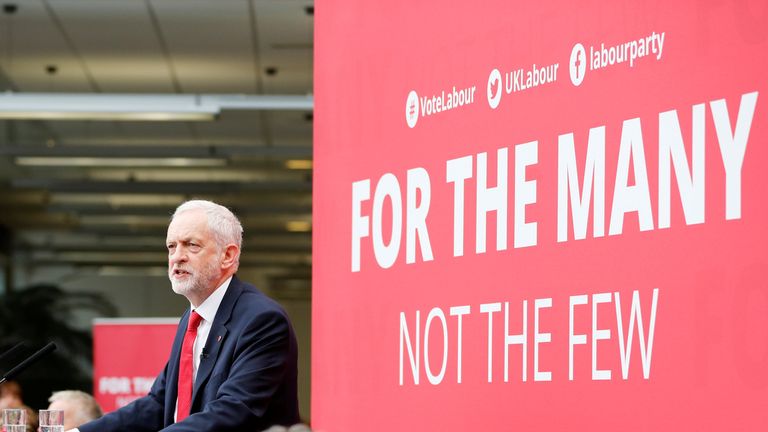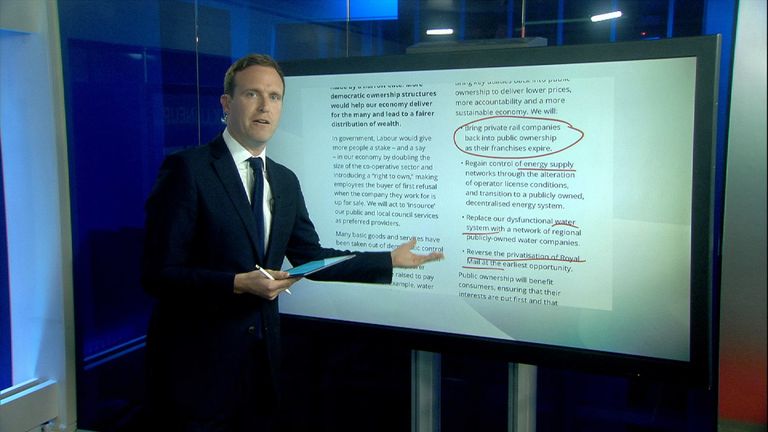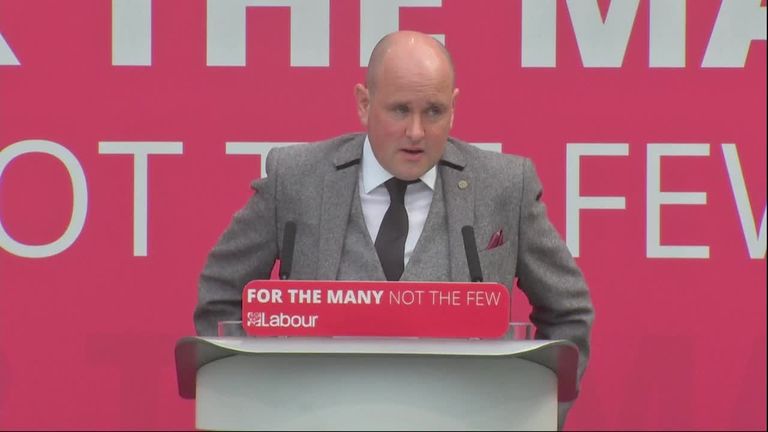Labour's take-back-control manifesto gives votes 'radical' offer
No manifesto like this has been put to the British people in years - but the obvious question is: how many will vote for it?
Tuesday 16 May 2017 21:44, UK
For Labour it is the "take-back-control" manifesto.
Indeed Jeremy Corbyn mentioned the phrase in relation to the policy of bring water industry into public hands.
Mr Corbyn is trying to channel the same instinct that led to many core Labour voters backing Brexit, refashioned as a reason to vote for a radical Labour offer.
He is clearly trying to jump-start the election, changing its frame from one concerned with Brexit leadership to one about a revolt against a longstanding Conservative government seeking a half-decade hegemony.
::
Indeed Mr Corbyn seemed quite proud when I put to him the Institute for Fiscal Studies assessment that the manifesto suggested the strongest government involvement in the private sector since the 1970s.
His principle answer: the Conservatives were planning to take Britain even further back with a return to grammar schools and fox hunting.
The Labour leader is unapologetic about the 124-page document's "radical" nature.
A long list of potential public ownership, from "bringing private rail companies back into public ownership as their franchises expire" and a plan to "regain control of energy supply networks and... a transition to a publicly owned, decentralised energy system".
On water, Mr Corbyn promised to "replace our dysfunctional water system with a network of regional publicly owned water companies".
He confirmed the longstanding policy to "reverse the privatisation of Royal Mail at the earliest opportunity".
::
This is stretching the hand of the state firmly into what has been the private sector.
It is not quite the unprecedented left-wing populism that some will characterise it.
On water, England is the odd one out amongst the four home nations in having a private water system.
On rail, GNER has rather recently been making profits for the Government from public ownership.
Mr Corbyn, though, knows what he is doing.
He is announcing policies that will clearly cut through to voters, in the sense that they will recognise them.
The regular doorstep experience of "they're all the same" is rather difficult to sustain with this document.
Team Corbyn is now unofficially gleeful at the amount of media coverage gained by the leaked draft manifesto.
It gets Mr Corbyn to first base in any election campaign. The public will now be aware of many of his distinct policies.
The obvious question though is how many actually want to vote for this prospectus.
::
Ed Miliband did not lose in 2015 because he was seen as insufficiently radical or because of too few rises in tax and spend.
Conventionally speaking, it is not a winning hand in the seats not so far from the Bradford University atrium housing his launch.
But this is a different type of election.
The Conservatives have conceded the principle of the Government having a stronger hand in energy prices, and worker rights. Labour has just taken it much much further.
The challenge is that Mr Corbyn's pitch requires trust in his competence more than any other recent potential prime minister.
He will have a hand in energy investment, rail fares and water rates.
And so, there is an issue about not knowing fully where the money will come from to pay for these nationalisations - (the answer is borrowing).
Mr Corbyn also appeared to announce an expensive new policy on unfreezing benefits, which is not a costed manifesto proposal.
He has not done that, but has made plans to spend a huge £11bn a year on scrapping tuition fees and reintroducing maintenance grants.
That is not prioritising the very poorest, but he will calculate he has already got their votes, and is already trusted to deal with that issue.
No one could argue that there is the clearest of water between the two main parties. Both main sides will welcome the clarity of the choice.
No manifesto like this has been put to the British people in recent years. So we don't actually know how it will go down over the next three weeks.
The problem for Mr Corbyn, is that if the polls are correct, then there is the clearest of blue water between the Conservatives and Labour too.
He requires a Brexit style populist anti-establishment mania in his favour that has so far been missed by the pundits and the polls.
Voters might well want to "take back control" again, but as yet not enough of them want to hand that control to Mr Corbyn.







